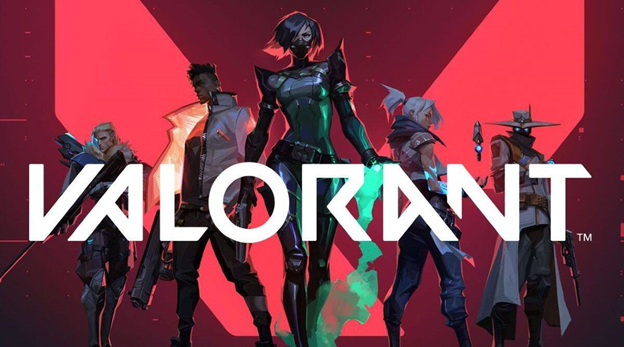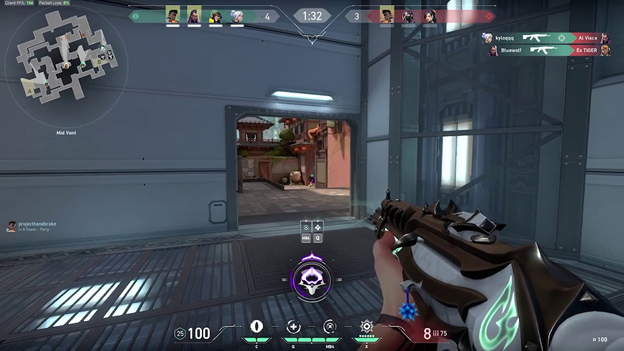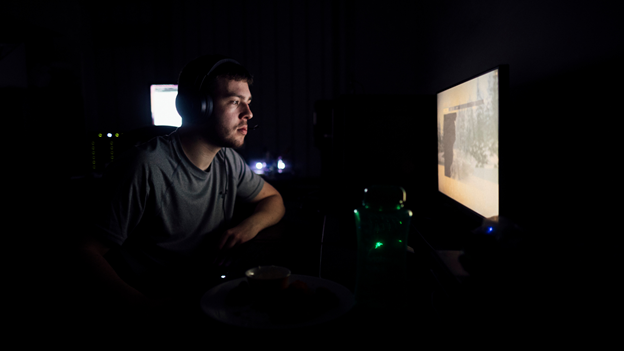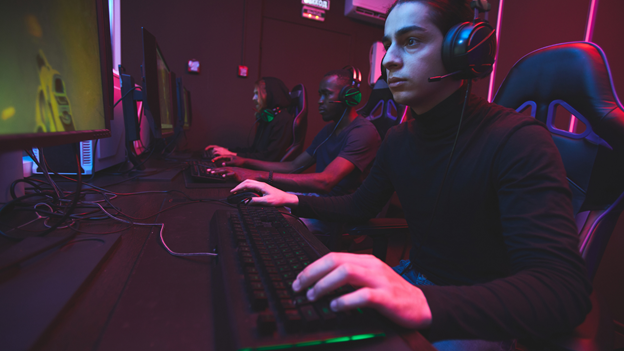Valorant Addiction: Overcoming Your Gaming Addiction

Valorant is a free first-person shooter developed by the gaming titan Riot Games for PC. Although the company is most popular for their hit MOBA League of Legends which dominated as the most played game in the world from 2010 – 2020. Clearly, there is a large audience to please so when Riot attempts another popular gaming genre they pull out all of the addictive stops in order to compete with the biggest titles. If you have been struggling with an addiction to Valorant and want to know how to cut down, then keep on reading.
Content
Why Is Valorant So Addictive?

The game is settled at a hefty 15 million monthly players so clearly the game must be doing well to retain players for that long. People who are addicted to video games can usually tell you what they like about the game but can’t quite put their finger on what is so addictive. Often times the most enjoyable parts of the game are the result of clever marketing, development and meticulous planning in order to keep users coming back for more.
Not to vilify video game developers as we mention quite often that there is a conflict of interest between the video game developer and the addict. Although some video games are arguably malicious in their intentions to cause addiction and influence gambling this cannot really be said for Valorant.
Let’s take a look at what makes Valorant So Addictive.
Competitive Gaming
By nature, all competitive games have to have a fairly polished ranked system and Valorant has just that. Players must play 10 provisional matches and depending on their performance they will be placed in their starting rank. From here, players who love the high intensity, skill-based matches will invest hours into trying to win more matches and climb the ranked ladder as high as they can.
One addictive aspect of the game is rooted in peoples desire for competition. Some people love to win and hate to lose so in order to minimise this happening they practice for hours to get better. Players will spend long hours clicking away, perfecting their aim, map knowledge and abilities all the while developing an addictive relationship with the game.
Improving at the game, climbing the ranked ladder and feeling the rewards of our hard-fought victories condition us to love the game more. Many people become dependent on gaming as their means of instant gratification and achievement, which can be dangerous to our motivation to accomplish things outside of gaming.
Initially, the game also had an interesting marketing tool devised by Riot as the free beta of the game was only available via a random drop from watching Twitch streamers play the game. This method not only increased the number of people watching the game but stirred up excitement over its exclusivity. Viewer counts for popular streamers were through the roof.
Cognitive Bias
Investing time and money into the game and deriving value from it. One addictive feature of the game that usually leads to us playing even if we want to quit is the cognitive biases we start to develop. Although this is not unique to Valorant it is still prevalent. What we mean by cognitive bias are things like the idea of “Loss Aversion”.
This is a common trait that we all possess but is much more powerful in someone addicted to video games.
A video game addict creates a rationale whereby they have invested too much time or money into the game that quitting the game would be a waste. The problem is, that the time and money invested are gone and continuing to play will not increase the value of the game that they are playing. Their desire to avoid loss as opposed to giving up the game to acquire gains in other aspects of their life is at an unhealthy balance.
In the current gaming climate, video games are being released at such a rate, overtaking each other and dominating the market. That even if they continued to play Valorant it is only a matter of time before the game begins to fade away. In order to overcome these cognitive biases, we will have to work on changing our relationship with our thoughts, which we will discuss later.
Symptoms Of Valorant Addiction

Many of you might be wondering “Well how do I know if I have an addiction to Valorant?” So in order to make this clearer, we thought we’d provide you with some of the most common symptoms of video game addiction. A lot of the time these symptoms can be shared with addictions to other video games not just Valorant so try to be vigilant if someone you know is suffering from these.
Physical Symptoms
Insomnia/Sleep Problems – Video game addiction and sleep problems are very closely linked due to the high levels of stimulation caused by video games. In games like Valorant where there are constant high-pressure situations that require intense focus to solve it cause spikes of adrenaline. Again that rush is another reason people get addicted to video games but as a result, it makes it difficult for our bodies to wind down into sleep. Elevated levels of adrenaline before bed have been shown to increase the frequency at which we wake up during the night and decrease the amount of restorative deep wave sleep we experience.
This alongside blue light is a recipe for disaster. Blue light is a wavelength emitted by screens and absorbed by our eyes. This wavelength of light before bed has been known to disrupt our circadian rhythm. The blue light interferes with the production of our natural sleep chemicals delaying our ability to get to bed. So that will likely explain why you can feel terrible in the mornings after long hours of gaming at night.
Strain Injuries – Repetitive strain injuries such as tennis elbow and carpal tunnel are two of the most common and detrimental injuries people receive when playing video games for long periods of time. When these injuries occur they can lead to weakness in the affected limb, soreness and chronic pain if left untreated. Despite ergonomic setups being a thing, they are often very expensive and don’t factor in excessive use like in the case of gaming intensely all night.
Behavioural Symptoms
Poor Academic/Work Performance – Considering the effects gaming has on our sleep it’s easy to see why someone suffering from video game addiction would struggle to remain productive in the workplace. However, this isn’t the only reason for poor performance. Playing video games can impact the reward centres of our brain causing us to prioritise video games over important responsibilities. Hence resulting in neglecting studies, missing deadlines, poor focus and attention span.
Neglected Personal Relationships – When playing games such as Valorant that reward and encourage teamwork it’s very likely that gamers team up with friends online to play. Whether players meet up on Discord or other communication apps they are forming friendships and getting the necessary social interaction they need. But this can slowly begin to cause social isolation when they begin to prioritise these online friends over real-life relationships.
Being addicted to video games means that most of their time is spent doing this act. If they can receive satisfying social interaction from this a lot of the time they begin to neglect loved ones around them. Face to face interactions are essential in building communication skills for life so video games can be shunting personal growth in this respect.
Valorant Addiction Stories

Despite video game addiction being considered an official mental health disorder, many people are still sceptical of the effects it can have. With behavioural addictions such as gaming, there is a stigma of “how bad can it be?” Sadly some of the effects of gaming addiction can be life-changing so we thought we would share how some people felt about their addiction when it was left untreated.
Some people on forums such as Reddit often complain about Valorant ruining their life, or playing for long unreasonable hours and finding it incredibly difficult to stop. One individual claimed that they were playing for 8+ hours a day. Fellow Redditors were offering support and guidance but sadly many of the commenters also struggled with this problem. A lot of the time people who suffer from video game addiction feel like they have no one to turn to that’s why The Mindful Gamer is here.
Sometimes people justify their gaming habits with the attempt to make a career out of it as many pro players and streamers have. With everyone, these days able to get their hands on a decent gaming rig for fairly cheap the competition to make it in this industry is stacked. One CSGO player turned Valorant pro player Pyth explained that he plays for 12 hours every day in order to improve and stay ahead of the competition. The problem with this is although gaming is his job it’s difficult to draw the line between diligent practice and video game addiction.
Valorant Addiction Treatments

Without any further ado here are some of the main ways to treat your addiction to Valorant. If you would like to know more you can take a look at our article on the most effective treatment methods where we cover these in detail.
CBT For Video Game Addiction
When it comes to treating video game addiction it requires dedication and trust in the process. Overcoming any behavioural addiction is changing the relationship with the negative thoughts that lead to the behaviour. Hence why Cognitive Behavioural Therapy is one of the main forms of treatment delivered by gaming addiction therapists.
The therapy is more well known as CBT for short and teaches ways to modify and take power away from negative thoughts. A lot of the time video game addiction stems from inaccurate or negative thoughts that result in a loop of behaviour. Someone might feel “I’m bored. I have nothing better to do so I’ll play Valorant” When someone plays for long hours they feel guilt and shame from neglecting everything else in their life so they run from this emotion through playing more video games.
Video game addiction has been known to show links to depression, so it’s no surprise that CBT shows great efficacy against gaming addiction as it is also used to treat mental health conditions such as anxiety, OCD and depression.
So how do we practice CBT? CBT is primarily practised through meditations and thought exercises. These exercises are talked through during therapy sessions and prescribed as homework to use whenever you begin to feel your negative thoughts creeping in. These sessions can be done any time anywhere as the goal is to become self-sufficient in overcoming your addiction.
One CBT exercise we always recommend for our members is journaling. Creating a trigger journal is a quick exercise we can start doing right now to decrease the power of our urges to play video games. Invest in a journal or a diary. We prefer that you use an actual book as opposed to your phone or tablet as these might facilitate your gaming habits. Every time you feel the urge to play video games we want you to write down:
- When you felt the urge to play. So the time it happened
- How the urge made you feel. Excited, anxious, upset? etc
- What triggered your urge to play. A message from a friend, an advert, a favourite content creator?
You should do this every time you feel an urge. Slowly you will begin to notice an improvement in the intensity of your desire to play. By writing down the urges we see them as simple words on a page as opposed to the powerful negative thoughts that they used to be. Furthermore, we can get a good understanding of what makes us want to play so we can later work on these.
That’s all for now, but if you have been having problems with your gaming habits or simply want to cut down, The Mindful Gamer is always here to help.








